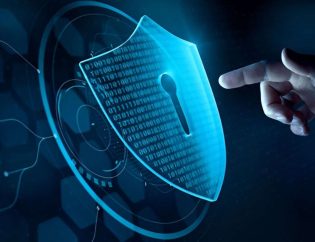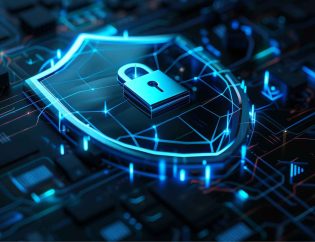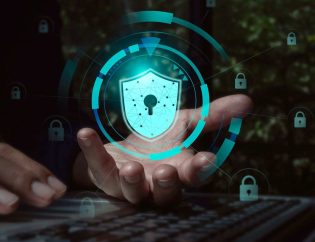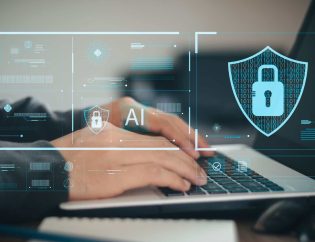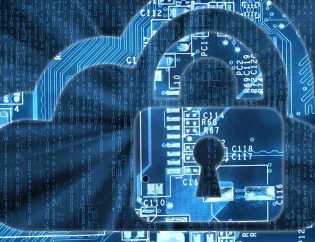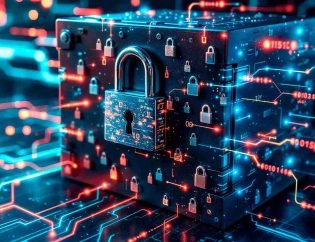
Table of Contents
Introduction
Compliance Requirements Overview
Understanding Security Rules for Data Protection
Key Requirements of GDPR & CCPA
Why Endpoint Security Compliance is Important
Best Practices for Ensuring Data Protection
Role of Encryption in Endpoint Security Compliance
Challenges in Implementation
Emerging Trends in Regulatory Compliance
Customer Testimonial
Conclusion
FAQs
Introduction
In today’s digital world, keeping personal and business data safe is very important. Organizations must follow endpoint security compliance rules to protect information and ensure privacy. Laws like GDPR and CCPA help businesses prevent hacking, data leaks and other cyber threats. Using strong security measures keeps data safe, builds customer trust and avoids legal trouble. Understanding these rules and best practices helps businesses stay secure and responsible.
Compliance Framework Comparison Table
| Security Practice | Purpose | Benefit |
|---|---|---|
| Data Encryption | Protects sensitive data | Prevents breaches |
| Access Control | Limits user access | Reduces threats |
| Security Audits | Finds vulnerabilities | Ensures safety |
| MFA | Adds login security | Stops hacking |
| Training | Educates employees | Prevents phishing |
| Incident Plan | Prepares for attacks | Faster recovery |
| Updates | Fixes security flaws | Blocks exploits |
Compliance Requirements Overview
Companies must follow security rules to protect data and meet legal requirements. Endpoint security compliance keeps data safe, prevents cyber threats and builds trust with customers. To stay compliant, businesses must use strong security measures and keep improving their systems.
Key Steps for Compliance
- Data Encryption – Protects important data by turning it into a secret code. Even if hackers steal it, they can’t read it.
- Access Controls – Only certain employees should see or change important data. This stops mistakes and insider threats.
- Incident Response – A quick action plan helps businesses stop and fix security problems before they cause big damage.
- Audits and Monitoring – Regular security checks help find weak spots before hackers do.
- User Data Rights – Laws like GDPR and CCPA let users see, change, or delete their personal data, improving trust.
- Employee Training – Teaching staff about cyber threats helps them avoid phishing, malware and other risks.
- Strong Passwords & Extra Security – Using multi-factor authentication (MFA) adds an extra layer of security, like a password plus a code sent to a phone.
- Keeping Software Updated – Updating software regularly fixes security issues and keeps hackers out.
Understanding Security Rules for Data Protection
Businesses must follow certain rules to keep data safe, protect privacy and prevent cyber threats. Governments and regulators create these rules to ensure companies handle personal information securely. Following them helps businesses prevent cyberattacks, avoid fines and build customer trust.
By following these security guidelines, companies can strengthen data protection, comply with legal requirements and create a safer digital environment for customers, employees and partners.
Key Requirements of GDPR & CCPA
To follow cybersecurity standards, companies must follow important rules to keep user data safe and protect privacy. These rules help businesses act responsibly and avoid problems.
- Keeping Data Safe – Companies must protect personal data using security methods like encryption and firewalls. This helps stop hackers from stealing information.
- Getting Permission – Businesses must ask users before collecting their personal data. People should know what information is collected, why it is needed and who can see it.
- Handling Security Problems – If a data breach happens, companies must find and fix the problem quickly. They must also tell users and authorities about the issue.
- Training Workers – Employees should learn how to handle private information safely. Training helps them avoid mistakes that could lead to data leaks.
- Being Honest – Companies must keep records of how they collect, store and share data. Users have the right to check their information and ask for changes or deletion.
By following these rules, businesses can protect data, follow the law and gain customer trust.
Why Endpoint Security Compliance is Important
Following endpoint security compliance rules helps businesses keep data safe, follow laws and protect against cyber threats. It also helps companies avoid fines and build trust with customers. Here are the key benefits:
- Follow the Law – Many countries have strict rules to protect data. Businesses that follow these rules avoid fines and legal trouble.
- Protect Important Data – Security measures help keep personal and business data safe from hackers and cybercriminals.
- Stronger Cybersecurity – Good security systems help find and stop cyber threats before they cause harm.
- Use Extra Security Steps – Multi-Factor Authentication (MFA) adds extra protection by requiring a password and a code sent to a phone or email.
- Check Every User and Device – Zero-trust security makes sure that only trusted people and devices can access company systems.
- Detect Cyber Threats Early – Artificial Intelligence (AI) helps find and stop cyber threats before they become big problems.
- Build Customer Trust – When businesses protect data, customers feel safe using their services. This improves the company’s reputation.
- Avoid Financial Losses – Following security rules prevents fines, lawsuits and damage to a company’s reputation.
- Keep Business Running Smoothly – Strong security prevents data loss and system downtime, helping businesses work without interruptions.
Best Practices for Ensuring Data Protection
To follow security standards rules and keep data safe, businesses should take important steps. These steps help stop cyber threats, protect sensitive information and build customer trust.
- Use Multi-Factor Authentication (MFA) – MFA adds extra security by asking for more than just a password. Users must enter a code sent to their phone or email, making it harder for hackers to break in.
- Install AI-Powered Security Tools – AI helps detect and stop cyber threats in real-time. It watches for unusual activity and quickly reacts to stop attacks.
- Keep Software Updated – Hackers target outdated software. Regular updates fix security problems and make systems harder to hack.
- Encrypt Important Data – Encryption locks data so only authorized users can read it. Even if hackers steal the data, they won’t be able to understand it.
- Check Security Regularly – Regular security checks help find and fix weaknesses before hackers can use them.
- Have Clear Data Handling Rules – Employees must follow strict rules when dealing with sensitive information to prevent mistakes and keep data safe.
- Use Automated Compliance Monitoring – Automated tools help track security rules, find risks, and alert teams about possible threats.
- Limit Data Access – Only authorized employees should access important data. This reduces the risk of leaks and cyberattacks.
- Train Employees on Security – Many cyberattacks happen because of human mistakes. Teaching employees about security risks, like phishing emails and password safety, helps prevent breaches.
Role of Encryption in Endpoint Security Compliance
Encryption is a way to keep important data safe from hackers and unauthorized users. It plays a big role in endpoint security compliance because businesses must follow strict data protection laws. Encryption works by turning data into a secret code that only the right people can unlock with a special key.
Why Encryption is Important:
- Keeps Data Safe – Encryption protects personal and business data from hackers. Even if someone steals the data, they cannot read it without the key.
- Follows Security Laws – Rules like GDPR and CCPA require companies to protect user data. Encryption helps businesses follow these laws and avoid fines.
- Stops Unauthorized Access – Only people with the correct key can see the encrypted data. This keeps sensitive information safe from outsiders and even some employees.
- Reduces Risk of Data Breaches – If hackers steal encrypted data, it is useless to them. This helps prevent major security problems and loss of important information.
- Builds Customer Trust – People feel safer when they know their personal data is protected. Good security practices make customers trust a company more.
- Improves Business Security – Encryption adds an extra layer of safety, making it harder for cybercriminals to steal or misuse data.
Using encryption helps businesses protect information, follow the law and gain customer trust.
Challenges in Implementation
Many businesses face problems when trying to follow security compliance guidelines. Keeping data safe takes effort, time and money. Here are some common challenges:
- High Costs – Setting up strong security, hiring experts and following rules can be expensive. Small businesses may find it hard to afford advanced security.
- Employee Resistance – Workers may not like new security rules because they seem difficult or slow down work. Companies need to train employees and explain why security is important.
- Changing Rules – Security laws like GDPR and CCPA often change. Businesses must keep up with new rules and update their security plans to stay compliant.
- More Cyber Threats – Hackers are always finding new ways to attack businesses. Companies must regularly update security tools and watch for threats.
- Old Technology – Many businesses use outdated software and devices that don’t support strong security. Upgrading to modern systems is necessary to meet security rules.
Emerging Trends in Regulatory Compliance
Security rules are always changing because of new technology and cyber threats. Businesses must stay updated to follow the latest laws and protect data. Here are some important changes:
- AI for Security Checks – Artificial intelligence (AI) helps businesses find security problems and fix them quickly. It can check systems automatically to make sure they follow the rules.
- Blockchain for Safe Data – Blockchain technology makes data storage more secure. It keeps records safe, prevents fraud and stops people from changing important information without permission.
- Zero-Trust Security – Companies are now using stricter security rules. No one can access data without first proving their identity. Every user and device must be verified before they get access.
- Stronger Data Protection Laws – Governments are making stricter security laws, like GDPR and CCPA. Businesses must follow these rules to avoid fines and keep customer data safe.
Endpoint Security Compliance is vital for protecting sensitive data and meeting regulations like GDPR & CCPA. Stay secure, avoid fines, and strengthen cybersecurity with the right strategies. #DataProtection #CyberSecurity
— Hyper Secure (@HyperSecure) February 14, 2025
Customer Testimonial
“We partnered with Hyper Secure to enhance our security posture. Their expertise ensured endpoint security compliance with GDPR and CCPA, significantly reducing our risk exposure. Their proactive approach in threat mitigation has been invaluable.” – CIO, Tech Industry.
Conclusion
Companies need strong endpoint security compliance measures to safeguard sensitive data, follow legal requirements and defend against cyber threats. Maintaining compliance not only prevents security risks but also strengthens customer trust and business credibility.
Hyper Secure, a leading Endpoint Security Company, helps businesses stay compliant with advanced security solutions. Our cutting-edge tools detect threats, prevent data leaks and ensure full compliance with GDPR, CCPA and other regulations. With Hyper Secure, organizations can achieve robust endpoint protection, minimize risks and stay ahead of evolving cybersecurity challenges.
FAQs
What does compliance mean?
Compliance means following data protection laws by using encryption, access controls and security monitoring to keep information safe.
Why is following regulations important?
Not following regulations can lead to heavy fines, legal trouble and damage to a company’s reputation.
How do security frameworks help businesses?
Security frameworks provide clear guidelines to help companies manage risks and strengthen their cybersecurity.
What are the consequences of not complying with regulations?
Companies can face penalties like GDPR fines of up to €20 million or CCPA fines of $7,500 per violation.
How can companies ensure compliance?
Businesses can improve compliance by using strong security measures, performing regular audits and training employees on data protection best practices.
References
- European Data Protection Board – GDPR
- California Consumer Privacy Act (CCPA)
- National Institute of Standards and Technology (NIST)
